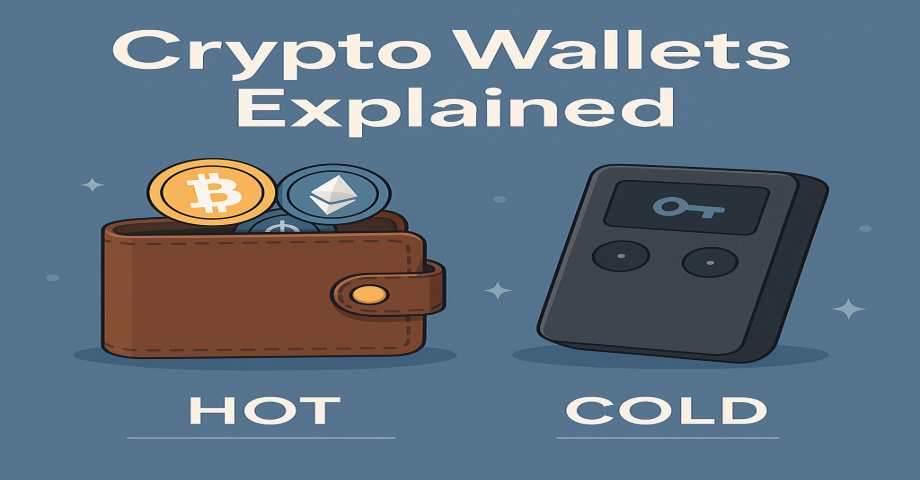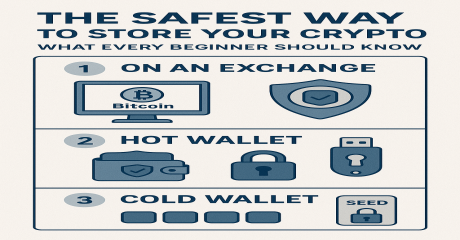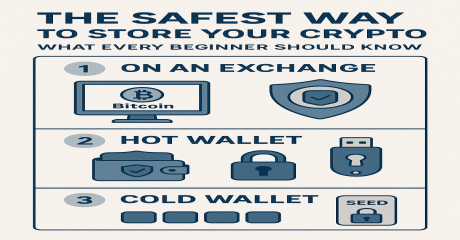Crypto Wallets Explained: Hot, Cold & What You Really Need

What Is a Crypto Wallet?
Before you can safely store, send, or receive cryptocurrencies, you need a crypto wallet.
But unlike your physical wallet, a crypto wallet doesn’t actually “hold” your coins. Instead, it stores the keys that give you access to your crypto on the blockchain.
Let’s break it down in simple terms.
Wallet Basics: Private Keys vs. Public Keys
-
Public Key → Like your email address. You can share it. It lets others send you crypto.
-
Private Key → Like your password. You NEVER share this. It gives full control over your crypto.
Your wallet is simply the tool that stores these keys securely.
Hot Wallets vs. ❄️ Cold Wallets
Hot Wallets
These are connected to the internet and are easy to use for quick access.
Examples:
-
Mobile wallets (e.g., Trust Wallet, MetaMask)
-
Exchange wallets (e.g., Coinbase, Binance)
✅ Pros:
-
Easy to access
-
Convenient for trading or daily use
⚠️ Cons:
-
Vulnerable to hacks if not protected
-
Your keys may be stored by third parties (custodial wallets)
Cold Wallets
These wallets are offline and offer maximum security.
Examples:
-
Hardware wallets (e.g., Ledger, D’CENT, Trezor)
-
Paper wallets
✅ Pros:
-
Extremely secure
-
Great for long-term holding
⚠️ Cons:
-
Not as quick for daily transactions
-
If you lose the wallet and seed phrase, funds are lost forever
Custodial vs. Non-Custodial
-
Custodial Wallet: The company holds your keys (e.g., wallets on exchanges)
-
Non-Custodial Wallet: You hold your keys and have full control
💡 Rule of thumb:
Not your keys, not your crypto.
Crypto Atlas always recommends non-custodial or cold wallets for storing large amounts of crypto safely.
What Wallet Should a Beginner Use?
If you're just starting out:
-
Use a hot wallet like Trust Wallet or MetaMask to get familiar with how wallets work.
-
Once you invest more, buy a cold wallet for secure storage (D’CENT or Ledger are great choices).
-
Learn to back up your seed phrase—this is the most important step.
Crypto Atlas Tip:
We educate all our clients on how to set up wallets, protect their assets, and avoid common mistakes. Every investment plan we offer includes a basic wallet guide to make sure you stay in control.
You wouldn’t leave your cash on a park bench—don’t leave your crypto on an exchange.







